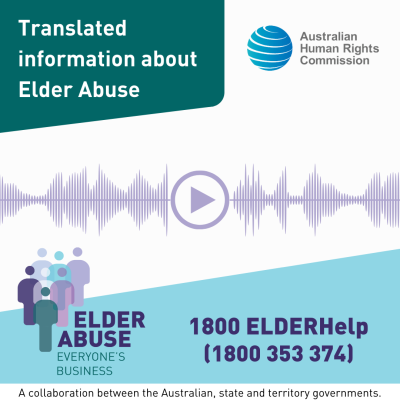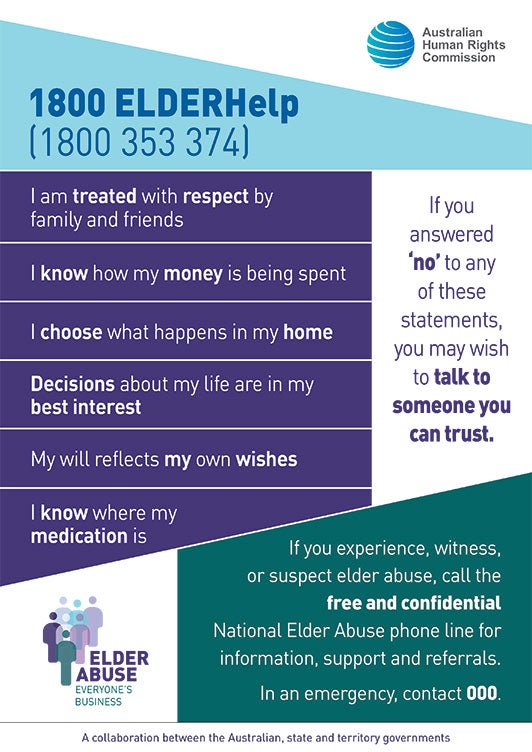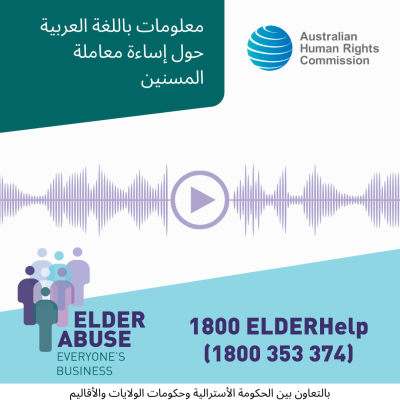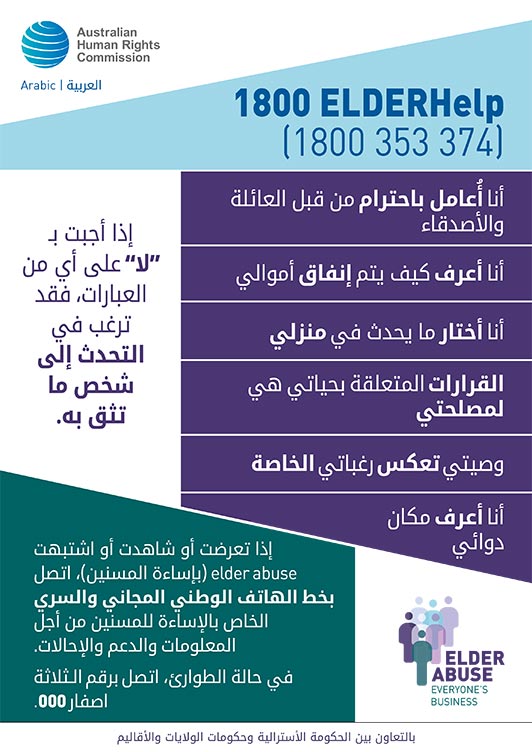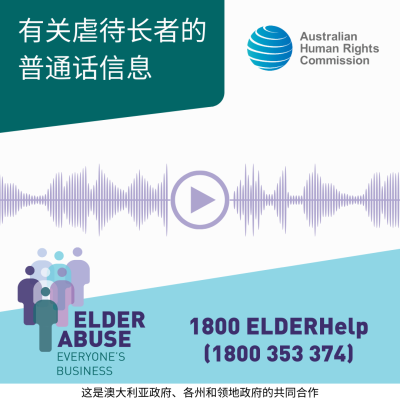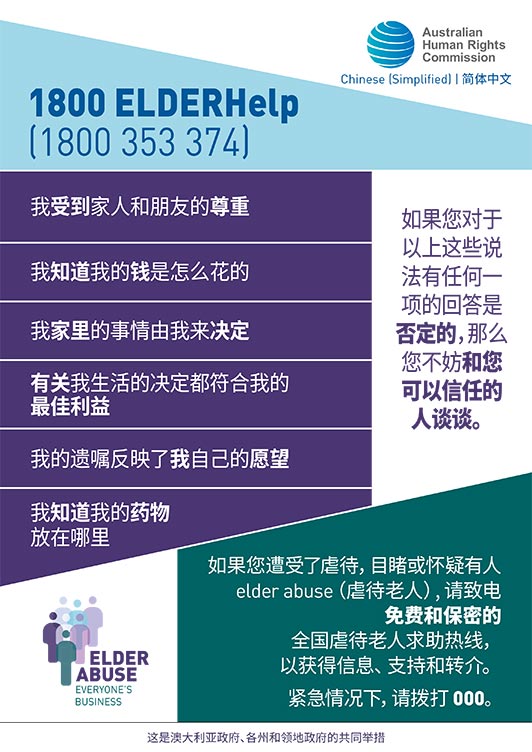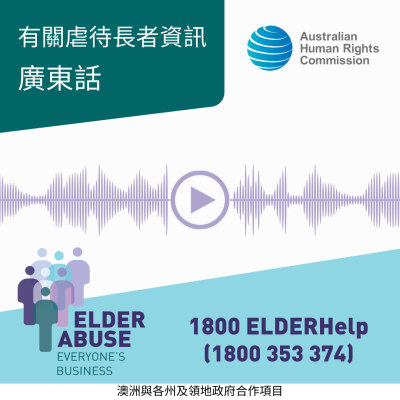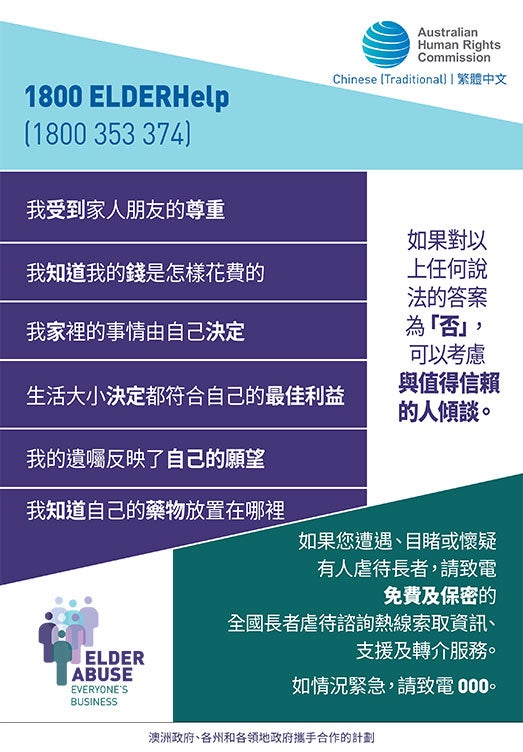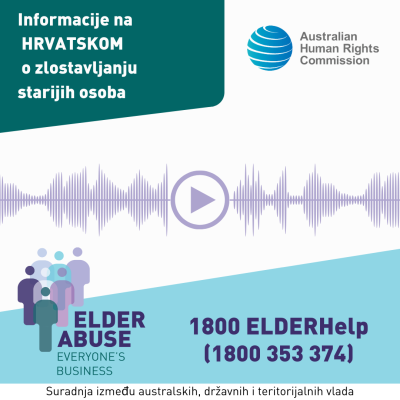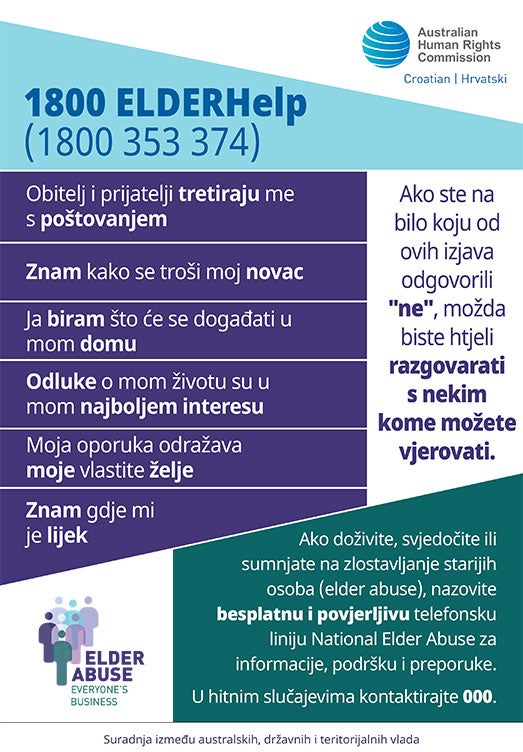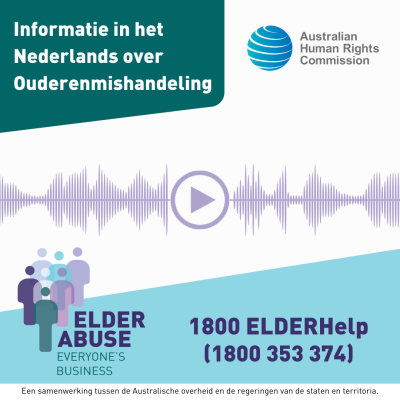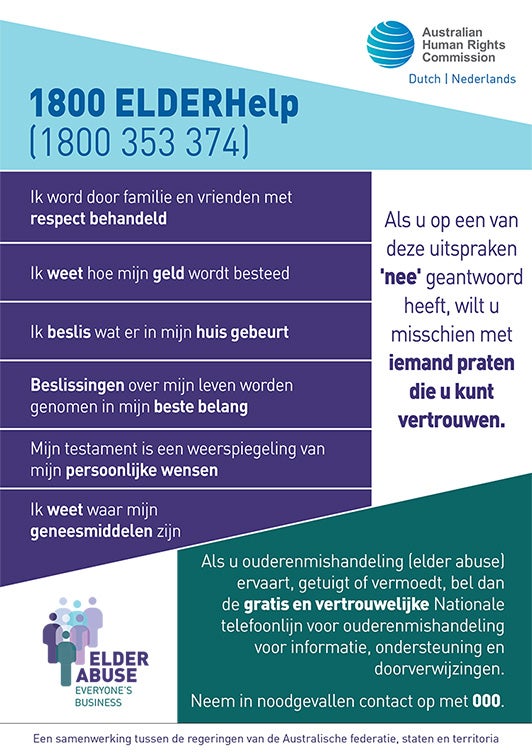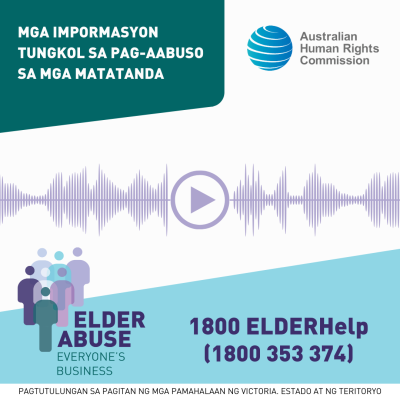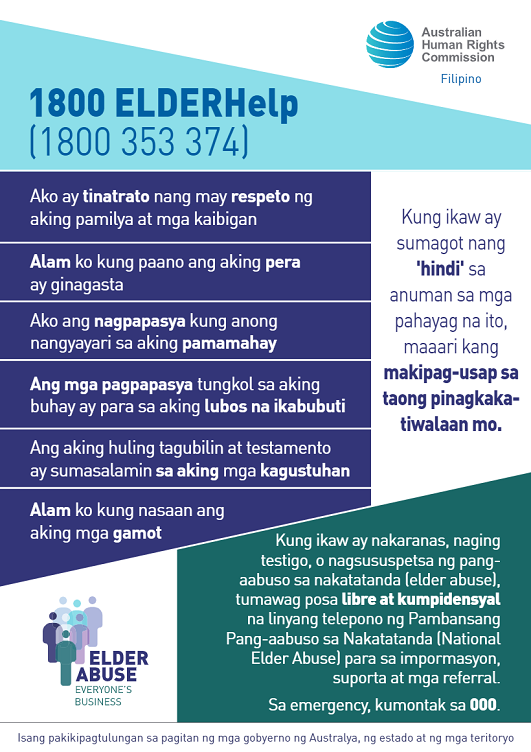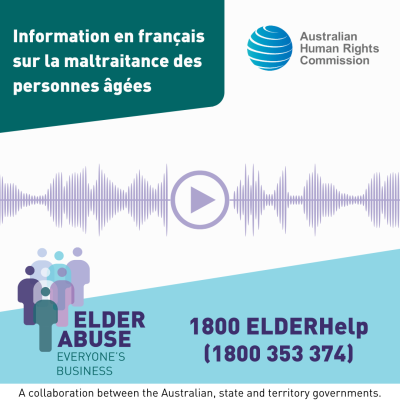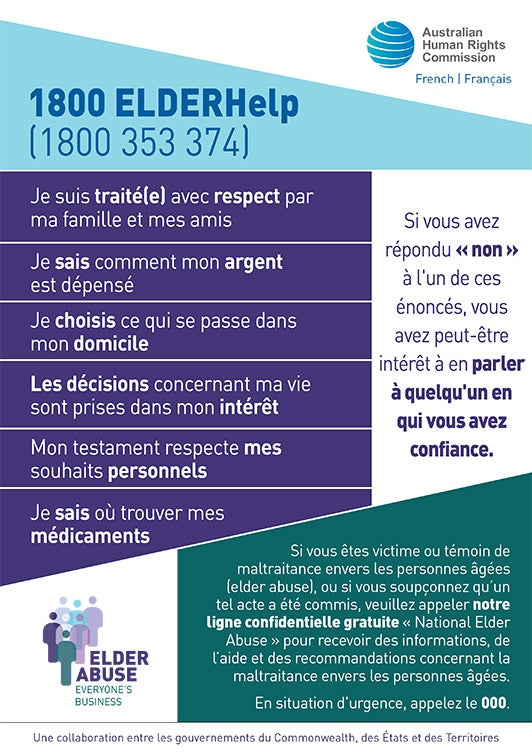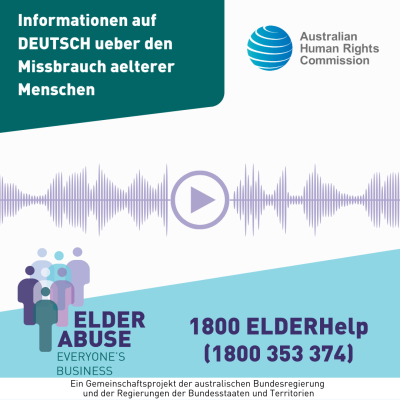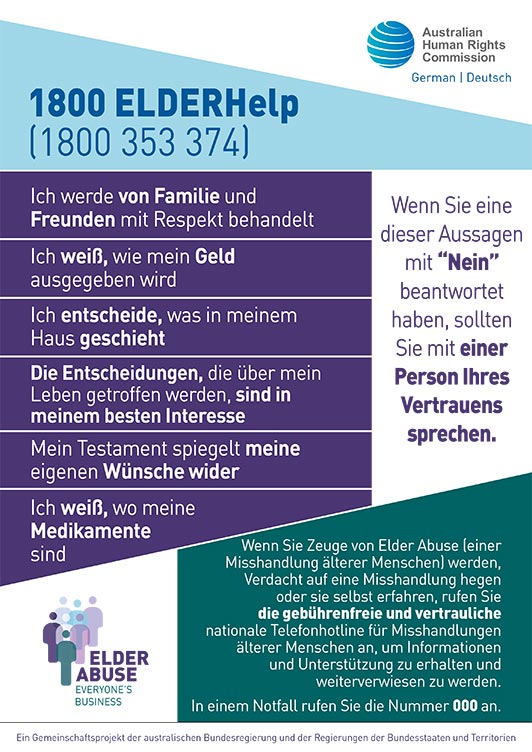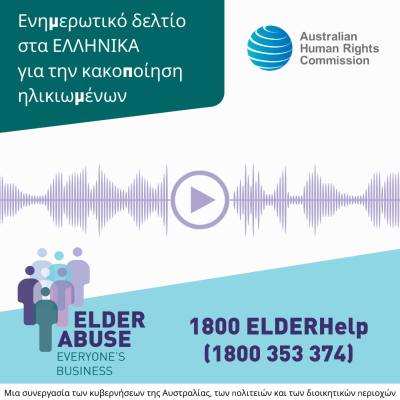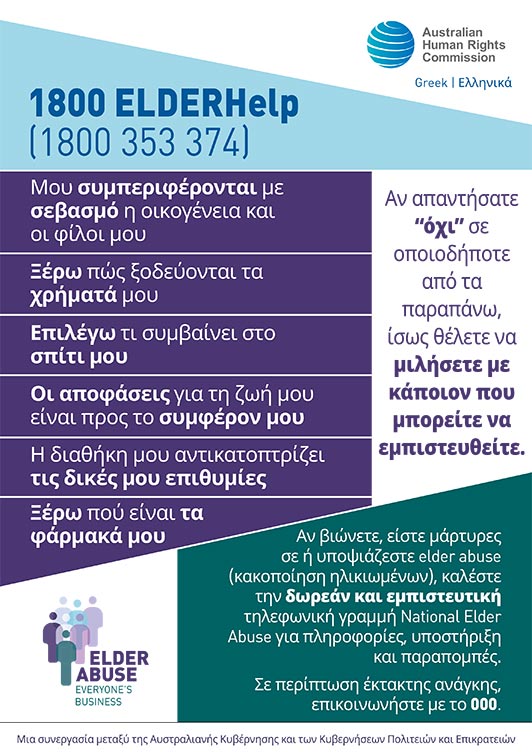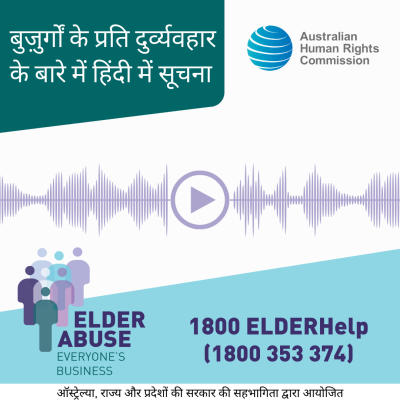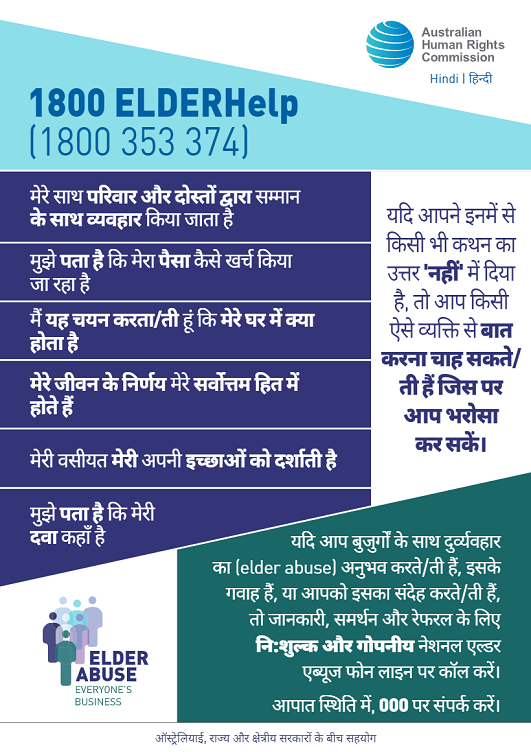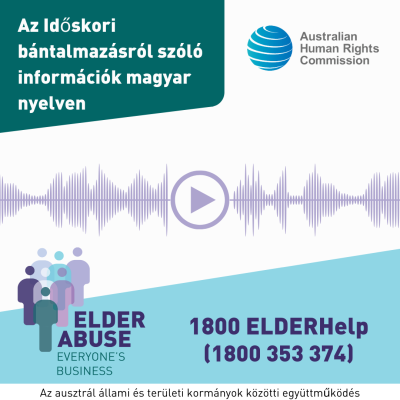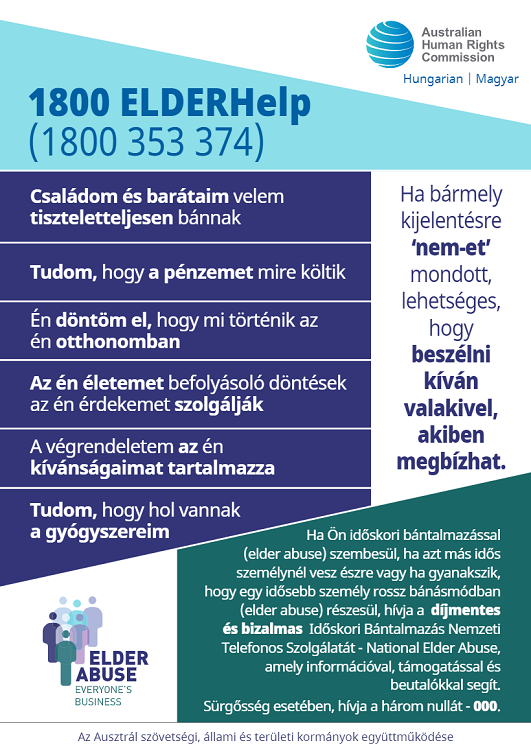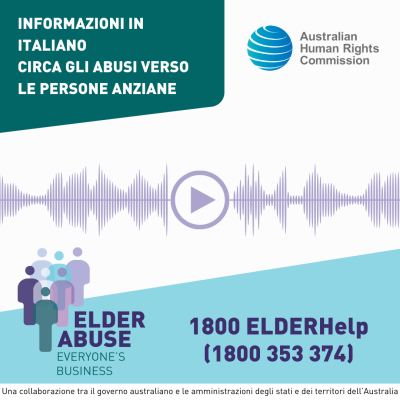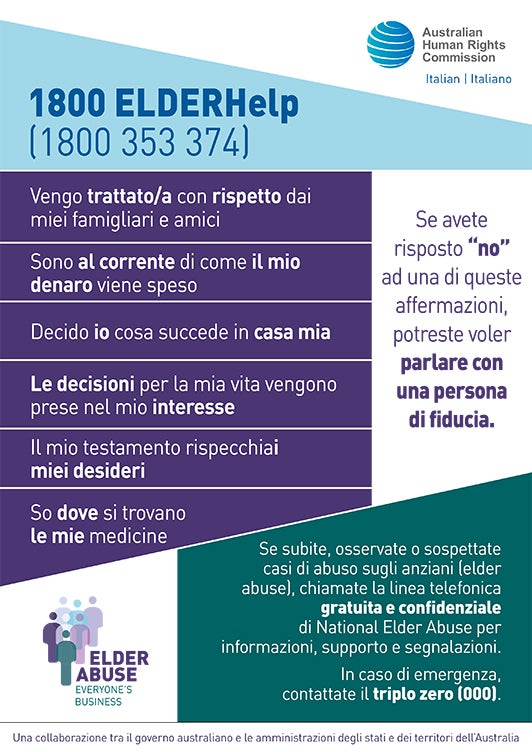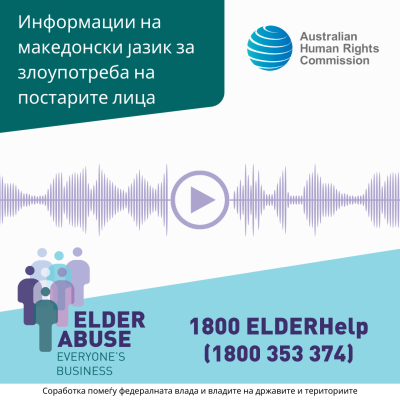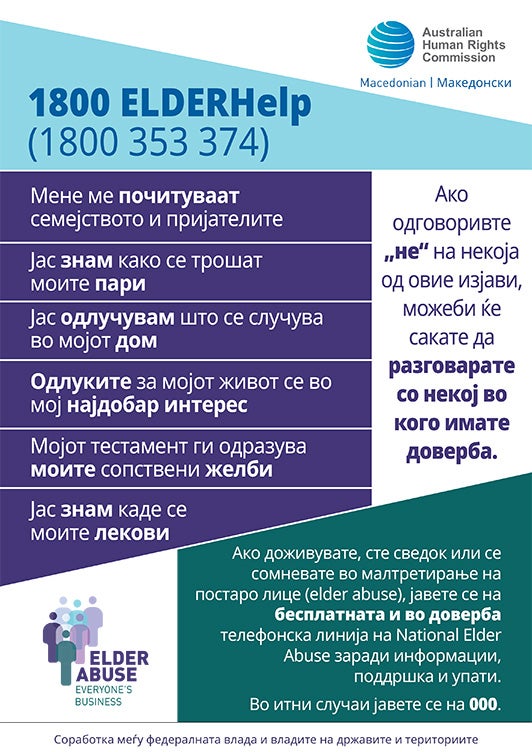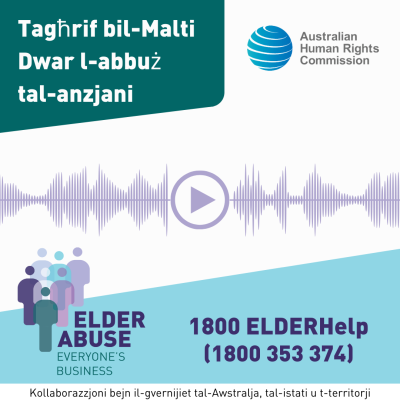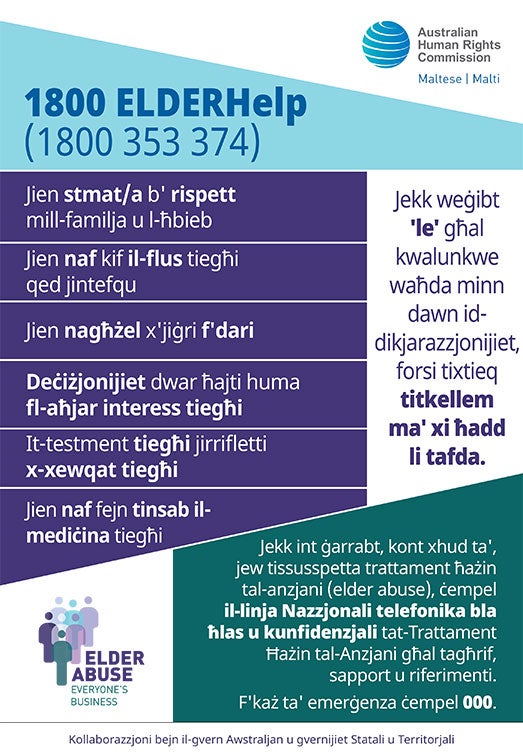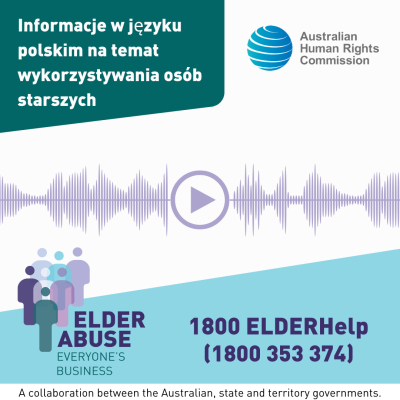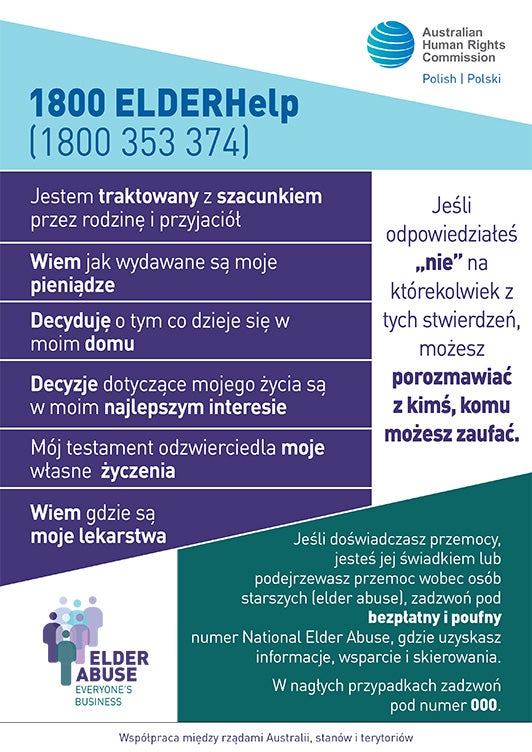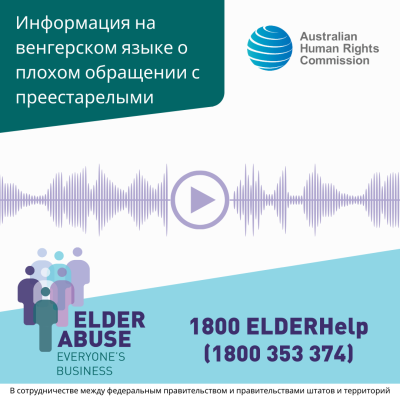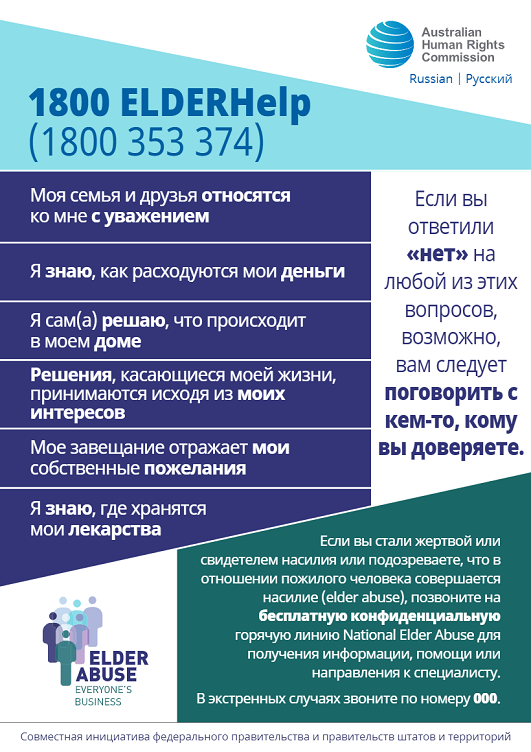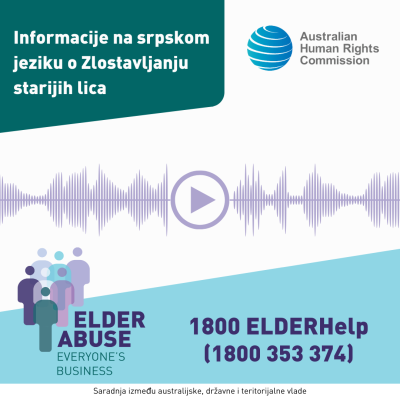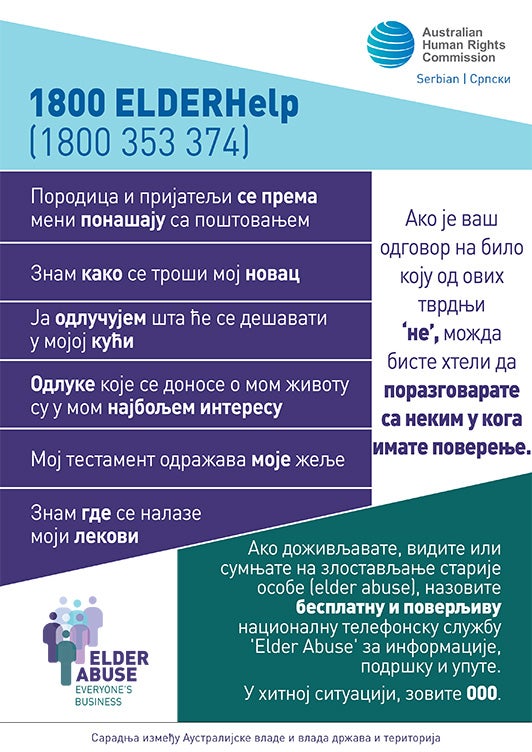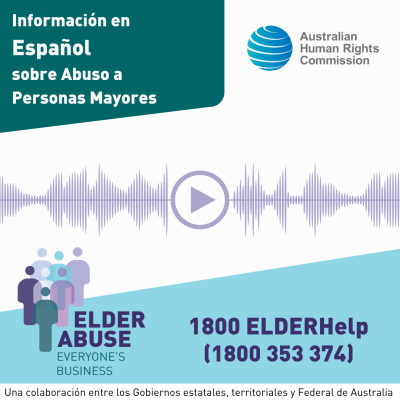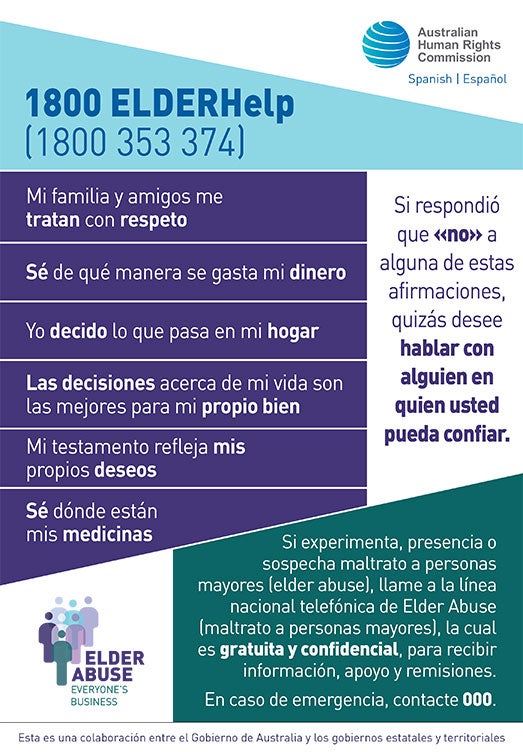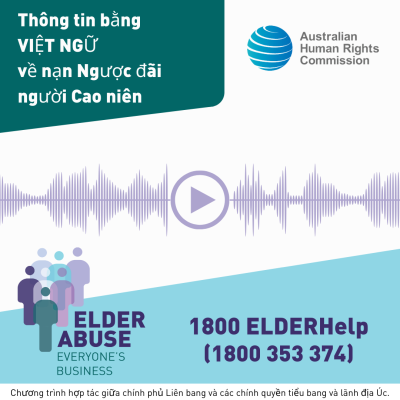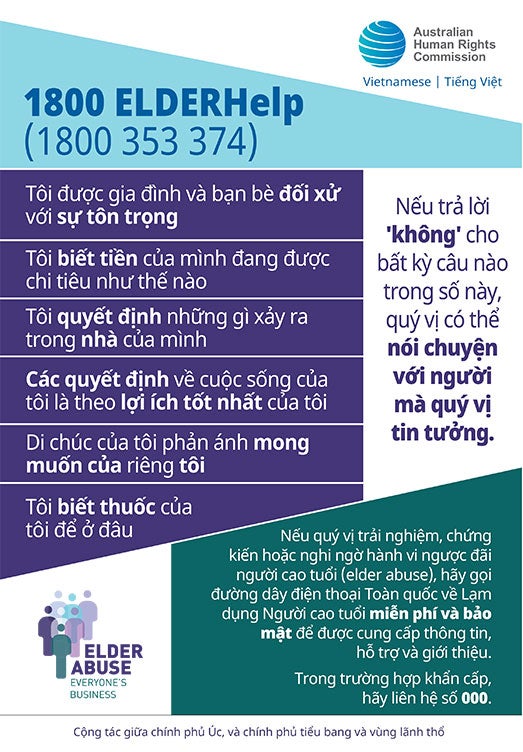Elder abuse

Elder abuse has been defined by the World Health Organization (WHO) as 'a single, or repeated act, or lack of appropriate action, occurring within any relationship where there is an expectation of trust which causes harm or distress to an older person'.
Elder abuse can take various forms, including: financial, physical, psychological, emotional and sexual abuse, or neglect. No older person should be subjected to any form of abuse.
In June 2017, the Australian Law Reform Commission published a report titled: Elder Abuse — A National Legal Response. The Commission has been working alongside organisations and government departments to implement the recommendations from this report and the priorities outlined in the National Plan to Respond to the Abuse of Older Australians (2019-2023). A second iteration of the National Plan is currently being developed.
The Commission continues to:
- raise awareness of elder abuse and inform older Australians of the supports available to them
- raise awareness of people’s rights and obligations when entering substitute decision arrangements, such as wills and power of attorney arrangements
- encourage the development of elder law education programs and the establishment of an elder law specialist accreditation
- foster connections between organisations to encourage the evaluation and sharing of existing programs and best practice
- work with stakeholders across various industries, such as health and finance, to increase workforce understanding and awareness of elder abuse.
Planning ahead for later life

The Australian Human Rights Commission has produced a range of educational resources to raise awareness about the importance of planning ahead for later life.
The focus of our 'Have You Thought About Later Life?' campaign is to provide resources in English and five community languages to support Australians to have these conversations.
Future planning empowers older people to have choice and control over their senior years and provides peace of mind for them and their loved ones. It involves thinking about and then talking to those you trust about your future healthcare, financial and lifestyle choices.
Planning ahead maximises your opportunity to live and enjoy your later years the way you want and helps those around you understand your wishes and how best to support you. Making plans can safeguard your rights in the future, reduce family stress and conflict, and even protect you against elder abuse.
Find out more about planning ahead for later life...
Elder Abuse Awareness Campaigns
Shift your perspective | 2022 campaign
Launched on Saturday 1 October to coincide with the 2022 International Day of Older Persons, the campaign 'Shift your perspective' includes a series of videos which prompt perpetrators to consider how their behaviour might be affecting older people in their lives.
This campaign aims to bring about a shift in perspective among perpetrators and educate all Australians about what elder abuse can look like and where to get support.
What can you do to help? | 2021 campaign
On the International Day of Older Persons, 1 October 2021, the Commission launched its second elder abuse video campaign ‘What can you do to help?’ to raise awareness among people who interact with older Australians about the warning signs of elder abuse and where to get support.
Know the signs | 2020 campaign
The Commission's first elder abuse video campaign, ‘Know the Signs’, was launched on 1 October 2020 and encourages people to open their eyes to elder abuse, know the warning signs and understand that it can happen to any older person.
Elder abuse resources in 20 languages
The Commission has also developed elder abuse awareness bookmarks and posters to increase community awareness of the signs of elder abuse and the National Elder Abuse phone line. The resources are available in 20 languages including English. If you would like to request bookmarks and posters to share with your community, please contact Age.DiscriminationCommissioner@humanrights.gov.au or click on the links below to download:
- English
- العربية / Arabic
- 简体中文 / Chinese (Simplified)
- 繁體中文 / Chinese (Traditional)
- Hrvatski / Croatian
- Nederlands / Dutch
- Filipino
- Français / French
- Deutsch / German
- Ελληνικά / Greek
- तहनिदी / Hindi
- Magyar / Hungarian
- Italiano / Italian
- македонски / Macedonian
- Malti / Maltese
- Polski / Polish
- Русский / Russian
- Српски / Serbian
- Español / Spanish
- Tiếng Việt / Vietnamese
Over the years, the Commission has worked closely with key stakeholders on the issue of elder abuse and encouraged the sharing of a range of elder abuse programs and resources.
For more information on national, state and territory activities to respond to the abuse of older Australians, see ag.gov.au/elderabuse.
You may also wish to visit COMPASS, which is funded by the Australian Government, which brings together the best resources and information on elder abuse from across the country.
If you are concerned about elder abuse and want more information, or the opportunity to talk to someone about your concerns, as well as options for getting help, you can call 1800 ELDERHelp (1800 353 374) which is the National Elder Abuse phone line. 1800ELDERHelp automatically redirects callers seeking information or advice on elder abuse to their state or territory phone line service.
If you require assistance in an emergency or life-threatening situation, please contact 000.

